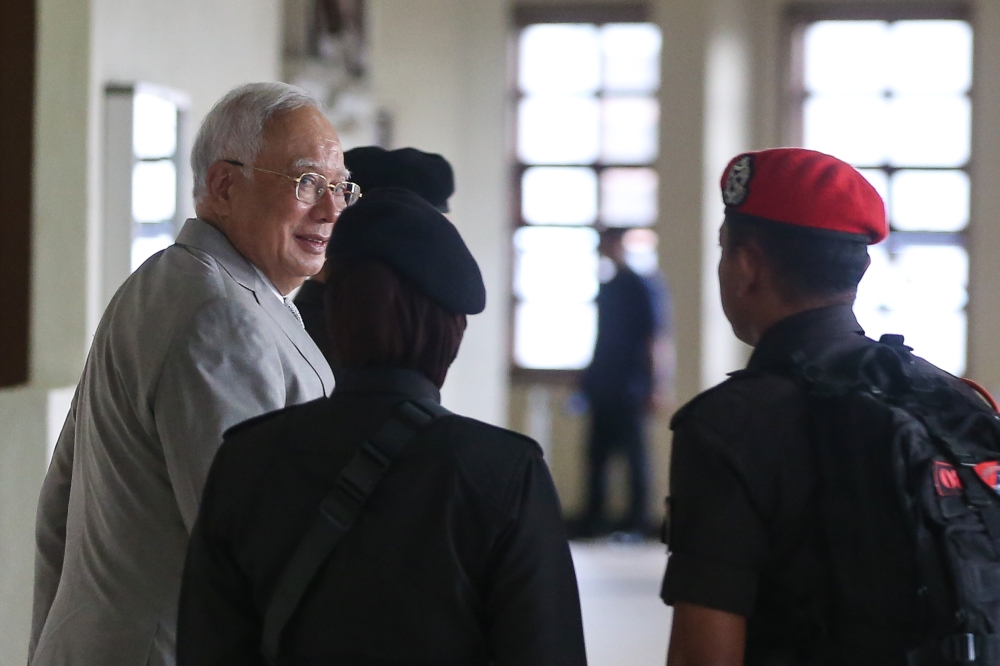JANUARY 5 — A judicial review is a two-stage process at the High Court.
The first stage is called the leave stage. At this stage, the High Court sieves out frivolous and vexatious cases.
The second stage is the substantive stage. This is where the full merit of the case for judicial review gets ventilated and decided by the High Court.
Leave is a statutory requirement and cannot be dispensed with.
What is required of the applicant at the leave stage is to show a prima facie case that the application is not frivolous or vexatious and that there is some substance in the grounds supporting the application.
The court should avoid a detailed examination into facts which are in dispute. The applicant, on the other hand, should provide substantial particulars of the facts and matters that he is seeking to rely in support of his application as the circumstances may permit as to assist the court in getting a complete picture of his case.
The grant or refusal of leave must necessarily depend on the facts of the case.
In the case of Dr Michael Jeyakumar Devaraj v Peguam Negara Malaysia [2013], at the leave stage the High Court granted leave to commence judicial review when the supporting documents exhibited by the applicant clearly showed that the applicant had no arguable case.
On appeal, the Court of Appeal set aside the order of the High Court in granting leave. On further appeal to the Federal Court, the apex court upheld the decision of the Court of Appeal.
In the case of Dato’ Sri Mohd Najib bin Tun Hj Abd Razak v Menteri Dalam Negeri & Ors [2024] Najib Razak (the applicant) filed an application for leave to commence judicial review principally for two orders which were in the nature of a mandamus — that is, to compel the authorities (the respondents) (a) to answer and/or confirm the existence of an Addendum Order which allegedly provided that the applicant was to serve the reduced term of imprisonment under house arrest; and (b) to provide the applicant with a copy of the Addendum Order dated January 29, 2024.
A mandamus is a command issued by the court to an authority to perform a public duty placed upon it by law.
There were accordingly two issues before the High Court at the leave stage. The first was “whether hearsay evidence is permitted in an affidavit verifying the facts relied on in an application for leave to commence judicial review proceedings”.
The second was “as a separate and distinctive issue, whether the criteria of granting an order of mandamus have been satisfied by the applicant”.
The learned High Court answered both issues in the negative and accordingly dismissed the application for leave to commence judicial review.
The applicant has appealed to the Court of Appeal which will decide on the appeal when it comes before the appellate court again on January 6. The appellate court will decide whether the High Court judge was correct on the law to decide as he did based on the facts of the case.
The appellate court, as did the High Court, will not go into the matter in any depth as the whole purpose of requiring that leave should first be obtained to commence judicial review would be defeated if the court were to do that.

The court’s approach should be this: if, on a quick perusal of the material then available, the court thinks that it discloses what might on further consideration turn out to be an arguable case in favour of granting to the applicant the relief claimed, it ought, in the exercise of a judicial discretion, to give the applicant leave. (See the judgment of Lord Diplock in IRC v National Federation of Self-Employed and Small Businesses Ltd [1982])
If the Court of Appeal thinks that leave should be granted, it will allow the appeal. The case will proceed to the second stage, where the full merit of the case for judicial review will be ventilated and decided.
So, it was the right call by Umno secretary-general Asyraf Wajdi Dusuki who announced that the party would not proceed with the rally planned for Monday, following remarks from Istana Negara as well as advice from the inspector-general of police.
He said the decision aligned with the party’s long-standing commitment to upholding the monarchy and the rule of law.
There will be nothing historic about Monday at the Court of Appeal.
If otherwise, there should be another rally when the Court of Appeal hears the appeal by the Malaysian Bar against the High Court’s decision to dismiss its application for leave to commence judicial review of the Pardons Board’s decision to reduce Najib Razak’s prison sentence and fine in the SRC International Sdn Bhd case.
* This is the personal opinion of the writer or publication and does not necessarily represent the views of Malay Mail.





















